April 14, 2025 | 16:18 GMT +7
April 14, 2025 | 16:18 GMT +7
Hotline: 0913.378.918
April 14, 2025 | 16:18 GMT +7
Hotline: 0913.378.918
Paying attention to every detail of nutrition, including the right trace mineral source, determines how pigs deal with heat stress.
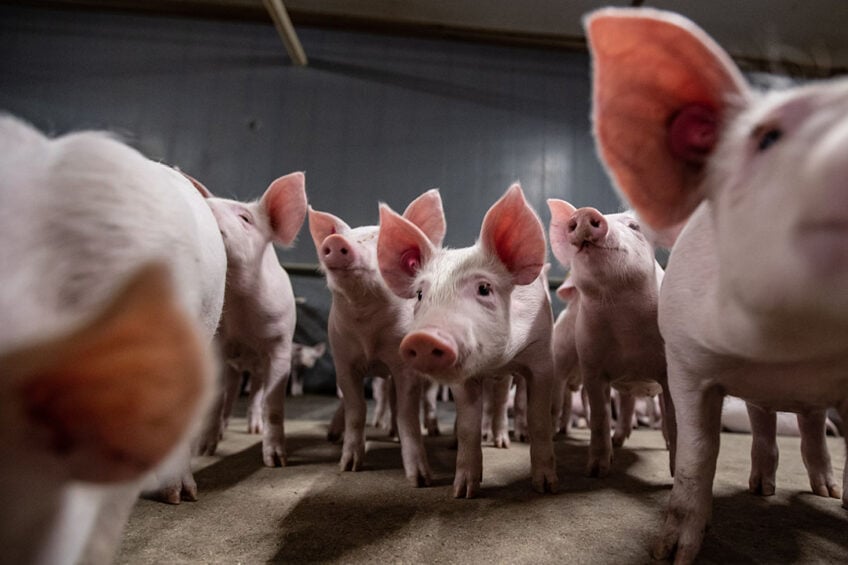
Nutrition heat stress. Photo: PP
During heat stress pigs consume less feed, and nutrients are allocated more towards fat deposition than protein deposition. High temperatures cause finishing pigs and sows to reduce their intake of both feed and water.
As heat stress reduces a sow’s feed intake, it can also depress milk production, leading to reduced piglet body weight gain. A drop in feed intake will also lower the growth rate in finisher pigs. Every degree of increase in environmental temperature above 23°C potentially reduces feed intake by 89 to 106 g in growing pigs, depending on the level of humidity. Generally, a pig’s body tries to minimise the effects of heat stress by deploying two strategies: disseminating heat and reducing internal heat production. For heat dissemination, swine rely heavily on convective and conductive heat loss by panting and by increasing the body’s contact with the cool floor of the barn system.
A decrease in metabolic heat production is achieved mainly through reduced feed intake. Under conditions of severe heat stress, animals can become more susceptible to immune challenges because of damage to the intestinal wall structure. When heat-stressed pigs divert their blood flow to the skin to increase heat dissipation, the gastrointestinal blood vessels vasoconstrict to maintain blood pressure.
That situation leads to fewer nutrients being absorbed to supply gastrointestinal tract cells, which in turn leads to an observed reduction in growth or milk production. Adverse effects on cell wall integrity resulting from heat stress can lead to leaky gut and an increased risk of infection. If the animal’s respiratory rate continues to increase it may lead to respiratory alkalosis, which can be fatal.
Some dietary elements, like trace minerals, must be included in the animal’s diet. As essential nutritional elements for livestock, trace minerals play a crucial role in the development and maintenance of bones and maintenance of acid base balances. Trace minerals are also essential components for carbohydrate, lipid, protein, vitamins, metabolism, hormone production, immunity and intestinal function.
Simply adding minerals is not sufficient. Precision matters when it comes to the type and level of trace mineral supplementation. During ration formulation, assuring that the minerals are provided at the right levels and that they are available to the animal is key to achieving optimal health, welfare and growth of pigs.
A diet excluding trace minerals or containing an insufficient supply will lead to deficiency symptoms and reduced performance. Excess amounts of trace minerals may also lead to a reduction in performance, and toxicity may occur. As a trace mineral needs to be available to the animal, the mineral premix added to feed is of vital importance for proper mineral feeding. The proper source is a function of a mineral’s content, solubility, relative bioavailability and economic value.
Hydroxy trace minerals, like IntelliBond, were designed to form a unique crystalline structure and covalent bonds. This structure delivers low solubility in water. However, intelligent bonding allows the mineral to become soluble and disassociate in conditions where the pH is below 4. This capability to adjust at the critical pH level makes hydroxy trace minerals less reactive to other ingredients in the diet and ensures a high relative bioavailability.
As heat stress affects the animal, it leads to tight junction dysfunction, increasing the passage of luminal content of lipopolysaccharide (LPS) from gram-negative bacteria into the portal and systemic blood. Lipopolysaccharides induce sickness-like behaviours such as lower feed intake and increased body temperature. This situation also stimulates macrophages to synthesise and secrete pro-inflammatory cytokines like TNF-α and IL-1β that are responsible for suppression of appetite, inducing fever and the production of other inflammatory molecules.
The source of trace mineral was shown to impact growth performance and immune response during animals’ exposure to a chronic immunity challenge. Pigs fed hydroxy trace minerals tended to have greater average daily gain (ADG), average daily feed intake (ADFI) and lower TNF-α concentration versus those fed sulphates when subjected to an immune challenge. This seems to indicate a higher bioavailability of hydroxy trace minerals versus sulphates, leading to an improved immune response, which limits the effects of inflammation on growth (Figure 2).
Palatability is an important consideration, as pigs have excellent taste perception. During heat stress, strategies for promoting feed acceptance must be prioritised to maximise feed intake. Several studies have shown that pigs prefer diets with hydroxy trace minerals copper source compared to sulphate copper source. The taste perception of the mineral is affected by its chemical structure and solubility. As sulphates are highly soluble in the oral cavity, their solubility can lead to a metallic and bitter taste that pigs are sensitive to, leading to a higher probability of feed refusal.
A trial performed to evaluate feed preference showed that it was greater for pigs fed control diets (no source of copper added) compared to diets containing 150 ppm copper. However, when given a choice between copper sources, feed intake was greater for diets containing IntelliBond C vs copper sulphate. Mitigating the reduction of feed intake can reduce the impaired response on performance during heat stress.
In summary, data show that the use of the right trace mineral source during times of stress can improve pig resilience, ensuring performance is sustained and the economic impact of stress is lowered.
(PP)
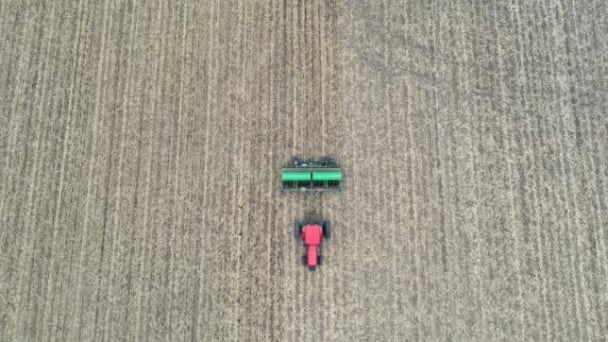
(VAN) Tariffs are making life more expensive for John Pihl. He's been farming in Northern Illinois for more than 50 years.
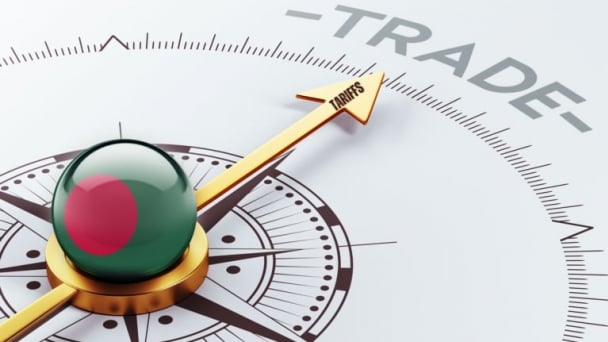
(VAN) European and American farmer organisations are concerned about the import tariffs that the United States introduced on 9 April for products from the European Union. This makes them 20% more expensive.

(VAN) Global poultry trade is expected to remain strong amid relatively tight global protein supply and growing consumption, RaboResearch concludes in its latest animal protein report.
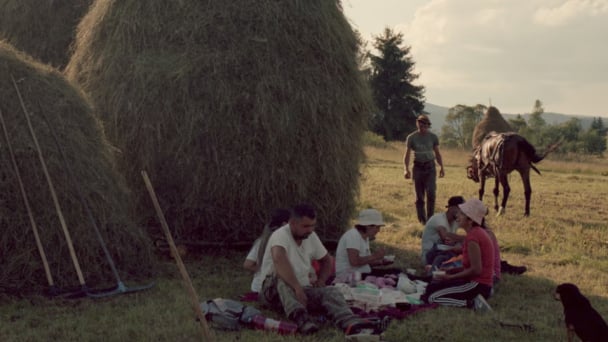
(VAN) Traditional methods benefit hundreds of species but as new agricultural techniques take over, the distinctive haystacks mark a vanishing way of life.

(VAN) The nation’s top banks are quietly advising their clients on how to build a financial life raft - or perhaps life yacht - from the wreckage of runaway climate change.
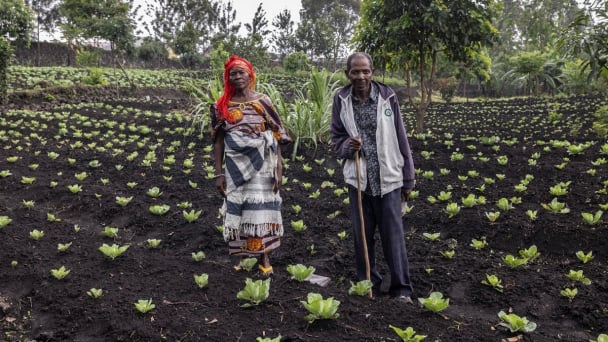
(VAN) From FAO Office in the Democratic Republic of the Congo.

(VAN) Corn prices in the Campinas region have surged past 90 reais ($15.80) per 60-kg bag, the highest nominal level in nearly three years, marking a more than 23% jump year-to-date, according to the widely followed Cepea index from the University of Sao Paulo.